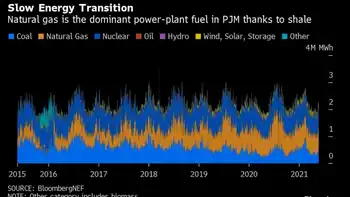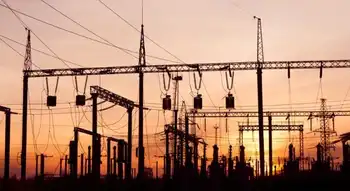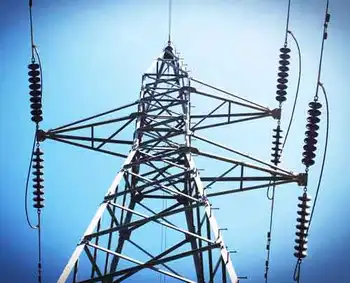Quebec, Vermont sign power deal
BURLINGTON, VERMONT - Vermont's two largest utilities have officially signed a $1.5-billion agreement with Hydro-Québec to purchase 225 megawatts of electricity.
Quebec Premier Jean Charest joined Vermont Gov. Jim Douglas in Burlington, Vermont, to announce details of the 26-year contract, which will begin in 2012 and run until 2038.
Vermont has purchased electricity from Quebec for years, and the current contract, signed in 1987, phases out in 2016.
Under the latest agreement, Central Vermont Public Service and Green Mountain Power will purchase 225 megawatts of energy, primarily hydroelectricity.
That represents a quarter of the energy consumed in the American state, enough to power 200,000 homes.
The price of the hydroelectricity will start at around six cents per kilowatt hour, but will be tied to inflation and electricity market indexes.
At the news conference, Charest said the deal showed that Quebec's hydroelectric power is clean and renewable.
"The government and state of Vermont is the first government in North America to recognize that hydroelectricity is clean and renewable energy, and can lead to tax credits," said Charest.
In June, Vermont became the first state in the U.S. to declare large-scale hydroelectric power as a renewable energy resource, clearing the way for the deal with Hydro-Québec.
The renewable energy bill created tax credits to encourage the development of small-scale projects across Vermont.
Charest has been pushing for the U.S. government to legally recognize Quebec hydropower as renewable, which would allow it to be sold at a premium to utilities in states requiring power companies to get some of their power from renewable sources.
Related News

BC Hydro to begin reporting COVID-19 updates at Site C
VANCOUVER - BC Hydro says it will begin giving regular updates to the public and the Peace River Regional District about its monitoring of the coronavirus COVID-19 at Site C.
BC Hydro met with the Peace River Regional District Sunday via phone call to discuss the forthcoming measures.
"We did a make a commitment to provide regular updates to Peace River Regional District member communities on an ongoing basis," said spokesman Dave Conway.
"(It's) certainly one of the things that we heard that they want and we heard that strongly and repeatedly."
Conway said updates could be posted as early as Monday on BC…




